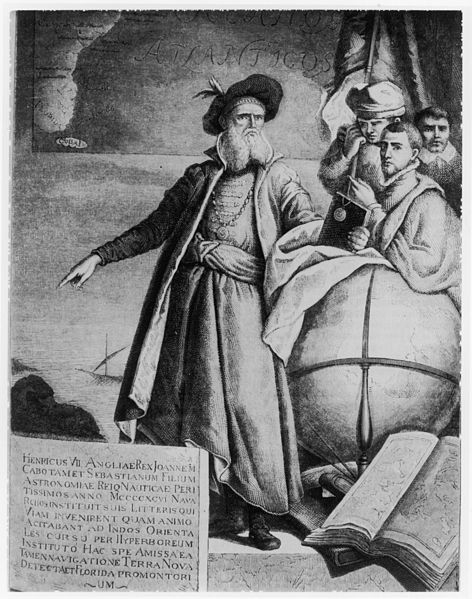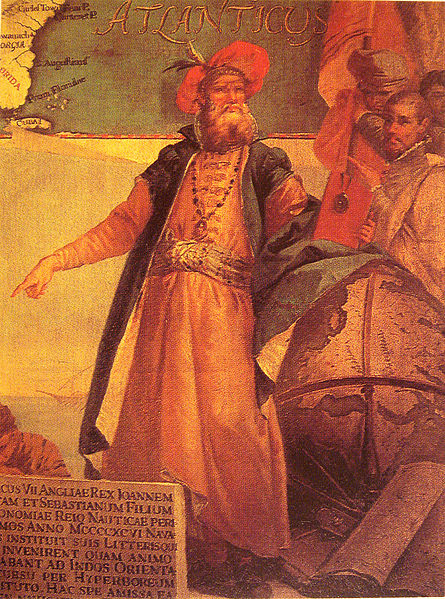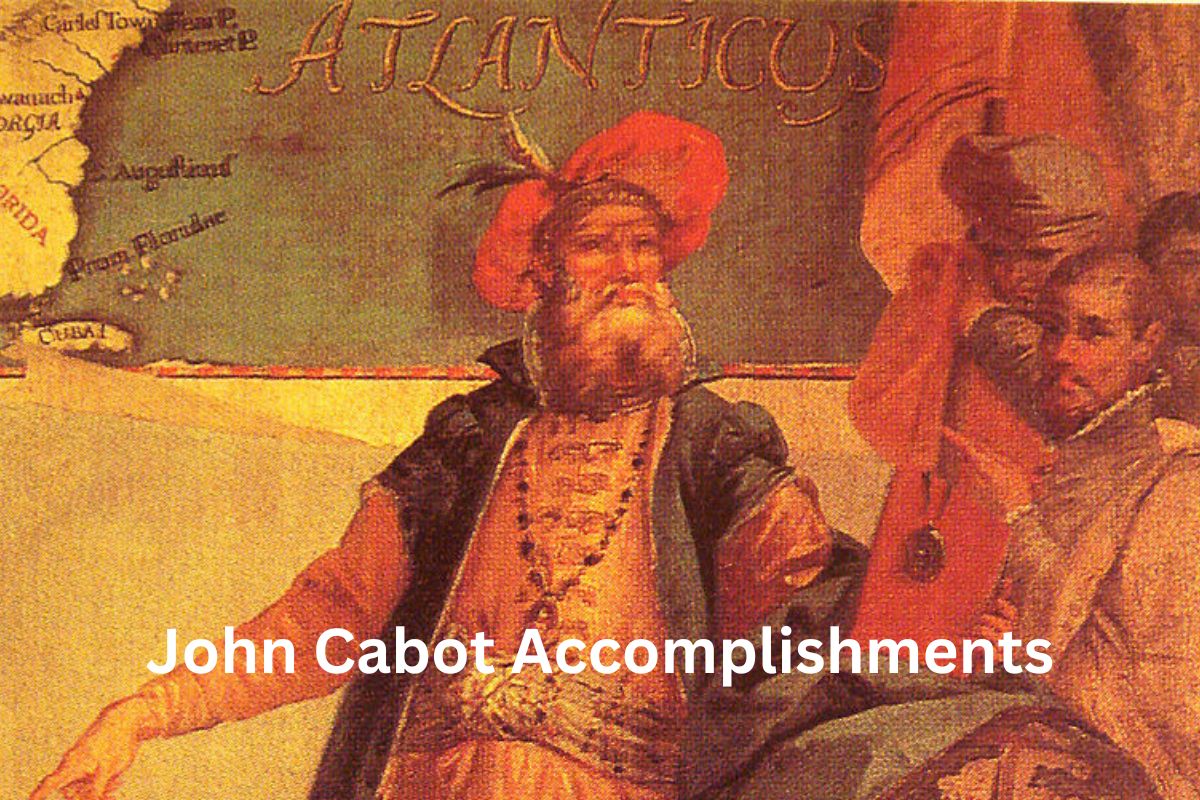John Cabot, also known as Giovanni Caboto, was an Italian explorer and navigator born around 1450 in Italy. Seeking a direct sea route to Asia, Cabot secured the support of King Henry VII of England and embarked on his first voyage in 1497.
During this expedition, he discovered the eastern coast of North America, likely reaching present-day Newfoundland or Labrador in Canada. Cabot’s exploration of the Labrador Coast and his reports of abundant fish stocks contributed to the establishment of English fishing fleets in North America.
His voyages played a pivotal role in inspiring English interest in colonization and trade expansion, strengthening England’s claims to the New World. Cabot’s maritime expertise, royal patronage, and legacy as a pioneering explorer continue to be celebrated and studied today.
Accomplishments of John Cabot
1. Discovery of North America
In 1497, John Cabot embarked on a voyage with the goal of finding a direct sea route to Asia. Instead, he made an important discovery by reaching the eastern coast of North America.
Although the exact location is still debated among historians, Cabot likely landed in present-day Newfoundland or Labrador in Canada.
This significant achievement marked the first documented European exploration of North America since the Vikings, opening the door for future European expeditions and colonization efforts.

2. Exploration of the Labrador Coast
During his first voyage, John Cabot extensively explored and mapped parts of the Labrador Coast. His meticulous documentation of the region’s geography, including the coastline, bays, and islands, provided valuable knowledge about this previously unknown territory.
Cabot’s exploration of the Labrador Coast contributed to a better understanding of the North American continent and paved the way for subsequent expeditions and colonization efforts.
3. Opening of North American fishing grounds
John Cabot’s reports of the abundant fish stocks in the waters off the coast of Newfoundland and Labrador played a crucial role in the development of North American fishing grounds.
His observations and accounts of the rich fishing resources attracted the attention of English merchants and fishermen. This led to the establishment of English fishing fleets in the area, which subsequently became an important industry.
The fishing industry not only provided valuable resources but also served as a foundation for English presence in North America and contributed to the later colonization of the continent.
4. Influence on English colonization
John Cabot’s successful voyages and his reports of newfound lands significantly influenced English interest in colonization. His discoveries sparked a renewed enthusiasm for exploration and territorial expansion among English rulers, merchants, and adventurers.
Cabot’s voyages provided tangible evidence of the potential riches and opportunities that awaited in the New World. As a result, his expeditions played a pivotal role in inspiring and encouraging subsequent English explorations and colonization efforts in North America.
5. Strengthening English claims to North America
John Cabot’s exploration and documentation of the lands he encountered helped bolster England’s claims to North America. His detailed maps, charts, and reports provided concrete evidence of English presence and territorial rights in the newly discovered lands.
Cabot’s findings and his assertion of English sovereignty in the regions he explored became essential elements in the legal and political arguments that England used to solidify its claims to North America. His expeditions contributed to the foundation of English territorial assertions and the eventual establishment of English colonies in the New World.

6. Promotion of trade
One of the primary motivations behind John Cabot’s voyages was the search for a direct sea route to Asia. Although he did not reach Asia, Cabot’s expeditions generated enthusiasm for exploration and trade expansion.
His reports of new lands and potential trade opportunities captivated English merchants and traders. The prospect of establishing direct trade routes with Asia and accessing valuable goods motivated English merchants to invest in future exploration and trade ventures.
Cabot’s voyages, therefore, played a significant role in fostering English interest in global commerce, paving the way for future trade expeditions and the growth of English trade networks.
7. Maritime expertise
John Cabot’s voyages were made possible by his extensive knowledge of navigation and seamanship. Cabot possessed a deep understanding of the principles of celestial navigation, the use of compasses, and the interpretation of nautical charts.
His expertise allowed him to plan and execute successful expeditions, navigating treacherous waters and unfamiliar coastlines with skill and precision. Cabot’s proficiency in maritime navigation and his ability to lead his crew effectively contributed to the overall success of his voyages and solidified his reputation as a skilled explorer and navigator.
8. Royal patronage
John Cabot secured the support and sponsorship of King Henry VII of England for his expeditions. Cabot presented his plans to the English monarch, highlighting the potential benefits of discovering new lands and establishing trade routes.
Recognizing the strategic and economic advantages, King Henry VII provided Cabot with the necessary resources and financial backing to undertake his voyages. The royal patronage enabled Cabot to assemble a crew, acquire ships, and procure supplies essential for his exploratory missions.
The backing of the English crown significantly increased the chances of success for Cabot’s expeditions and solidified his status as an official representative of England.
9. Paving the way for future explorations
John Cabot’s discoveries and reports laid the foundation for future explorations and expanded knowledge of the New World. His expeditions provided new and detailed information about the lands he encountered, including maps, charts, and descriptions of the coastlines, geographical features, and potential resources.
This knowledge proved invaluable for subsequent explorers, who built upon Cabot’s findings to further explore and map North America. Cabot’s explorations inspired a wave of subsequent expeditions by other European powers, leading to a greater understanding of the New World and setting the stage for future colonization and settlement.
10. Legacy and historical significance
John Cabot’s voyages had a lasting impact on European exploration and the course of history. His accomplishments helped shape the understanding of the world’s geography and paved the way for European colonization in the Americas.
Cabot’s expeditions provided vital knowledge about North America, influenced English claims and colonization efforts, and inspired other explorers to follow in his footsteps. His discoveries and reports contributed to the broader understanding of the New World and left a lasting legacy that continues to be studied and celebrated today.
John Cabot’s historical significance lies in his role as an early European explorer who played a crucial part in the Age of Exploration and the subsequent shaping of the Americas.
